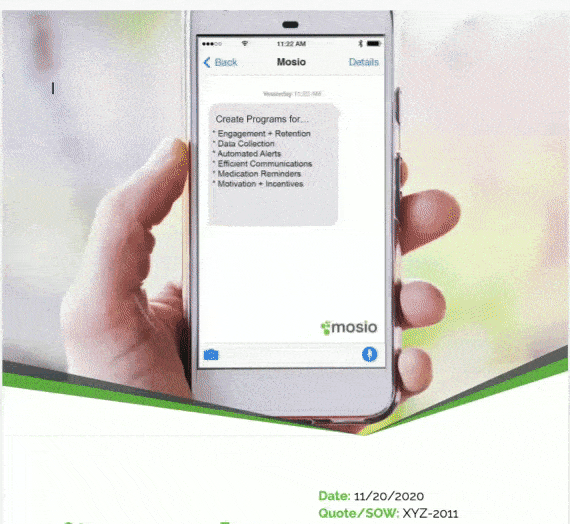There are many questions that need to be answered when making compensation decisions in the clinical trial space. How much should you pay research participants? What method of payment should you use? Is it ethical to offer compensation? Are there any rules or laws governing this area? Read on to find out answers to these questions and more.
Do research participants have to be compensated?
There are specific criteria to determine whether a research participant needs to be compensated. However, even when you follow these criteria, research participants have some rights in choosing what they receive as compensation and how that compensation is delivered.
The questions of whether or not a clinical trial should offer compensation, what form that compensation should take, and who makes those decisions are complex and need to be answered at each stage of development based on your own case. Unfortunately, there is no easy answer.
As with any legal issue, one size does not fit all. Each clinical trial compensation guidelines needs to be reviewed on a case-by-case basis to determine whether compensation is required and how it should be delivered. There are some key factors that will influence whether or not research participants need to be compensated for their participation in your clinical trial.
The first factor to consider is whether you have a financial relationship with them. If they are an employee of yours, then they may already receive payment for participating in your clinical trial; if they’re contracted but not yet paid, then they may still be compensated under those terms; and if they are otherwise unpaid when you recruit them into your clinical trial, then you need to pay them.
Your clinical trial compensation guidelines will also depend on whether they are an eligible research participant. Eligibility is determined by a number of factors, but primarily depends on whether they have already received your study treatment.
The biggest determining factor of eligibility is informed consent. Research participants can only give informed consent if they are adequately informed of what participation in your clinical trial entails and given their freedom to choose not to participate in your clinical trial without any negative consequences.
This means that you need to make sure that you have both established a sufficient level of trust with potential research participants and ensured that there will be no negative consequences for them if they choose not to participate.
What are the legal issues around clinical trial participant compensation?
Clinical trial compensation is not a new issue. Participants and practitioners have been paying each other since early clinical trials. In fact, some compensation practices are protected by statute or common law. Compensating participants for their time and effort is legally permissible if these payments are for past services and are reasonably related to those services.
The most important point is that researchers need to fully understand any federal and state laws relevant to their specific practice area before providing any type of remuneration (including compensatory payments) to clinical trial participants.
A recent case involving an experimental cancer drug trial stated that a local prohibition on remuneration did not apply where participants already had a preexisting legal relationship with study investigators. When it comes to clinical trial compensation, researchers should take care in ensuring they remain compliant with federal and local laws at all times.
In addition to state and local laws, it is important to consider federal law when making compensation decisions. For example, many clinical trials must be approved by FDA. If you are enrolling research participants in a study that has an investigational device exemption (IDE) or is not subject to IDE requirements, FDA’s guidance states that you may not offer any form of financial incentive (such as reimbursement for travel costs).
However, other incentives are permissible if they are not offered as an inducement to participate in research but rather as a means of recognizing participants who volunteer their time and services and who incur expense related to participation in your clinical trial.
What is an appropriate payment structure for research participant compensation?
For years, we’ve watched how research participant compensation has become more prevalent. Some people see it as an injustice to researchers, while others are a bit more pragmatic and see it as a much-needed response to rising healthcare costs in America.
Regardless of your viewpoint, one thing is clear: pay has to be consistent. There is no way to determine an appropriate payment structure without knowing where you stand in relation to your competitors’ compensation packages. When deciding on a payment structure for research participant compensation, be sure that you don’t sacrifice quality for price; if you’re going cheap, chances are high that participants will have their own ethical dilemmas about whether or not they should take part in your study.
If you want to attract qualified participants, pay can only go so low. There are no hard-and-fast rules for what constitutes an appropriate compensation structure for research participant compensation, but there are some things you can keep in mind. Compensation should cover any costs incurred by your participants (e.g., travel, lodging) and provide a fixed rate for time spent in clinical trials with compensation.
If you want to compensate participants for taking part in clinical trials with compensation, then you should be providing fair and reasonable reimbursement for their time. Some studies are more intensive than others. Make sure your research participant compensation is reflective of how much time they’ll need to invest in participating.
If a study takes place over an extended period of time, provide compensation for each phase. For example, if a participant is required to travel somewhere to take part in clinical trials with compensation on two different occasions, make sure they receive adequate research participant compensation per trip.
Clinical trial compensation guidelines
The main concern for some critics of clinical trial compensation guidelines is that they may induce healthy patients to enroll in a clinical trial who otherwise would not participate. According to one study, in 2006, only 14% of patient volunteers were classified as low-income.
Among those low-income patient volunteers, 9% had a household income below $20,000 per year and 68% had no health insurance coverage. It’s important that clinical trials should have appropriate compensation guidelines to reduce financial burden on human subjects. Thus any such guidelines should be based on tax payer money.
The first step in payment plans is to determine how much you are willing to pay. This is usually a simple calculation based on factors like number of participants and duration of study. But sometimes, due to insurance issues, financial considerations or other variables, there may be additional steps.
The second step is to find out if your company’s insurer can cover clinical trial compensation guidelines for your study. If not, contact potential participant sources for possible third-party or private sources of clinical trial compensation guidelines funding that may be available for your study.
Finally, ensure that you have an agreement from your participants in place that protects your interests and their participation. This can be in one of two ways: a standard participation agreement or a letter of consent. Participants should be given some type of compensation for their time, although that does not always need to take on a form of clinical trial compensation guidelines (i.e., cash).
Standardized forms are used most commonly and may be provided by companies providing clinical trial compensation guidelines or funded through agreements with patient advocacy groups or foundations dedicated to support patient-based research initiatives.
Using a third party administrator (TPA) or study funders bank account(s)
While you don’t need to send payments through a bank account, it can be easier for study participants and provide an added layer of security. If you do use a bank account, keep these points in mind: Use TPA or funder-controlled accounts for all trial payments.
Many clinical trial sites are outfitted with ATM machines that charge fees to withdraw money from their accounts. Paying into a study account lets study participants avoid paying fees each time they get paid.
Keep trial funds and participant records separate using subaccounts. One common mistake is to treat a clinical trial bank account like an operational account where both revenue and expenses come in and out at various times throughout your business cycle.
Having a study bank account is a convenient way to avoid spending time and resources on remitting payments manually throughout your clinical trial. Though TPA services charge fees for their services, many companies see them as an investment because of how much time and money they save in participant payments.
When choosing a TPA, compare pricing plans to see what makes sense for your company. However, don’t choose solely based on cost, because some additional features may be worth paying more for. It’s also important to know if you can use multiple TPA’s at once or if they are exclusive so you can choose which ones are right for your business.
Study funders are another way for clinical trial sites to send and receive payments. They can be a good option for sites with very high volume or sites that aren’t near a bank. The main difference between TPA’s and study funders is how they accept money, so read their payment guidelines carefully to make sure you understand how they operate.
Study funders typically keep participants’ funds in an account on their behalf, while TPA’s usually have a direct line of credit from financial institutions and give sites access to up-to-date electronic accounts to process withdrawals as soon as they are processed.
Make sure your study participants receive their payment(s) in person and without hassle—if they’re having trouble cashing out their money, they may decide not to complete your trial and you’ll lose valuable data. Using a TPA or Study funders bank account can help with this issue.
Where do I go for help with setting up my own clinical trial compensation program?
Regardless of your company’s needs and size, working with a professional clinical research organization (CRO) can help you get your compensation program off to a smooth start. CROs have in-house experts who can handle all aspects of clinical trial compensation management, including negotiations with potential participants.
Working with a clinical research organization will relieve you of some logistical burdens so that you can focus on how to handle other important elements in running clinical trials. To run a clinical trial compensation program, you need to decide whether to compensate your participants for their time and participation in trials.
The decision is ultimately yours, but if you choose not to compensate people for their time, at least inform them of your reasoning before they begin participating in your trials. Be careful when discussing clinical research with individuals because it is crucial that everything you say is as accurate as possible – after all, inaccurate information can harm your study’s success.
Clinical trial compensation is complicated enough to merit consulting a lawyer to ensure you’re complying with applicable laws. In addition, how you set up your compensation program may need to be customized according to your research protocol, which details what’s involved in your study.
Do clinical trials with compensation do better than those without compensation?
To determine whether clinical trials with compensation do better than those without compensation, we need to understand why some drug companies might want to offer payments. Drug companies would want to compensate trial participants for a few reasons.
First, by paying participants they increase enrollment in clinical trials and therefore more people are treated with new drugs. Second, compensating trial participants may improve overall participant retention (increase follow-up), which could also increase study success. Finally, compensation might be offered as an incentive to participate in studies that may be longer and more burdensome than traditional clinical trials; these factors could reduce attrition rates among clinical trial participants.
While compensating participants in clinical trials may have some benefits, there are also some risks associated with offering payments. First, and perhaps most importantly, regulatory authorities do not approve of such payments in certain circumstances. The FDA has historically opposed these payments for several reasons:
- If a drug company is already providing study-related care to participants who agree to participate in a clinical trial and participate in that trial without compensation then it would unfairly benefit from having two sources of reimbursement (one from market sales and one from patient participation in clinical trials)
- By paying patients in clinical trials, companies could create an incentive for patients to enroll in a particular clinical trial over another because they may stand to gain financially.
For example, there is evidence that doctors may recruit patients into trials in an attempt to benefit financially from their patients’ participation. If a drug company were to provide compensation then it might make such behavior more common and at least raise questions of conflict of interest.
US Regulatory Guidelines for clinical trial participant compensation
The United States Department of Health and Human Services guidelines on participant compensation are very clear: Clinical trials may be classified as small, medium, or large according to the number of subjects to be enrolled.
A clinical trial that involves relatively few subjects but requires high-cost procedures or extended monitoring may qualify as a large trial. Likewise, a clinical trial with a large number of participants but relatively little cost may qualify as a small trial.
Compensation practices that may be considered coercive include:
- A requirement for volunteers to agree to accept compensation as a condition of enrollment
- Pressure on participants or their families to accept compensation for injury or illness
- Failure to explain alternatives available to patients who have sustained an injury and wish not to accept compensation
- Offering payments for treatment of injuries without regard for medical necessity.
See US Department of Health and Human Services Title 42 Code of Federal Regulations Part 50: Protection of Human Subjects for more information.
Payments must be made in a timely manner and in accordance with fair market value: Although regulations may vary depending on which agency is managing your clinical trial, payments for study-related injuries or illnesses should be based on fair market value.
Fair market value is determined by what a person willing to pay would reasonably pay another person willing to sell an item in a voluntary transaction. If you use such a standard, consider consulting an appraiser who has experience evaluating similar types of items.
The nature of clinical trials often means that payment cannot be made until after study completion, as it takes time to determine whether anyone was injured during study participation or if an injury meets specified criteria.
Paying patients for participation in clinical trials is something that should be discussed with your clinical trial team. You will need to determine which local, state, and federal laws apply to you and how you would be able to compensate participants. Working with a professional Clinical Trial Organization may alleviate some of the stress of making these key decisions.









